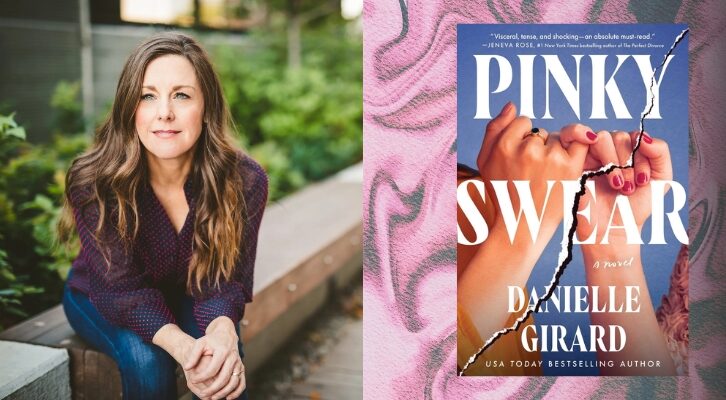
When You’re Always Going to Be the Second-Most Famous Writer in Your Marriage
Neal Allen on Living the Writerly Life with Anne Lamott
My wife and I are duking it out for places eight to fifteen within Amazon’s “Spiritual Self Help” category. First she’s number twelve, then nine, while I fall from eight to fifteen, and then we reverse again as the list updates once an hour. You need to sell about fifteen books a day on Amazon to make it onto the Spiritual Self Help list, though neither of us is comfortable with that label. We’re old enough to remember Norman Vincent Peale. But who cares? We’re both Top 10, sort of, in something.
Of course, my wife’s book came out twelve weeks before mine, in early March, and spent its first six weeks on the best seller list—not in Spiritual Self Help, but the somewhat broader category of Hardback Non-Fiction. And not as measured by Amazon, but by the LA Times and the Washington Post. (The New York Times annoyingly shoved her onto their separate Advice, Health, and Self Help list—you can’t be on that and General Non-Fiction—but Annie’s beautiful book on revival and courage, Dusk Night Dawn, entered at number four.) Those lists also happen to include sales in the brick-and-mortar bookstores that her adoring fans prefer.
As an unknown about to self-publish my first book, I’m at quite a disadvantage. She’s Anne Lamott! Legions of fans love her work. Selfies in the airports. M&Ms in the green rooms like a rock star. I’m an ordinary guy no one’s heard of (except as Mr. Anne Lamott) hanging along for the ride, and getting my life stuff done in my own shambly way—her term for me, which I learned on reading her latest book. As an ordinary guy I spend my days on Zoom with clients interested in taming their inner critic, and I garden, take walks, and write a little. That’s about it.
People most often focus on the problem of envy in writing couples, but to a know-it-all (another of Annie’s terms of endearment for me), pity is equally destructive. Especially when I’m the target for pity’s arrow. “Oh, [poor thing] you’re self-publishing? My uncle’s best friend [blowhard] self-published a wonderful [unreadable] book about his life in retail [bo-ring]. We had a little party [his family and mine] to celebrate. Will you have a little party?” What they mean is, “I’m so sorry it’s not good enough for a real publisher.” They are always so sweet and affirming, and I want to hurt them. At times like these I have come to admire my oldest who, when she was two, on greeting her brand-new-from-the-hospital sibling, said innocently, “Mommy, I won’t poke his eyes out.”
So if those are our two likely pitfalls, envy and pity, how do Annie and I contain them in our free-flowing dance as Covid newlyweds? Are we Astaire and Rogers, sweeping aside the pains of comparative mind with flow and grace? Not exactly. As it happens, envy and pity just don’t show up so much. Annie mostly denies the existence of her fame, and she’s right. It isn’t around us most of the time, especially when we’re clunkily nested in our sofa watching Swedish noirs. And it isn’t lurking, either. When the Annie I know and love is squinting, reaching around and patting cushions trying to find her glasses again she’s not famous in any way. And why would she pity someone like me who pops up in that annoying way all the time, interrupting her to get her to retweet my last bon mot or join me on a walk during her regularly scheduled daily nap time?
People most often focus on the problem of envy in writing couples, but to a know-it-all, pity is equally destructive.
It’s not that we’re actually good at avoiding this sort of emotional stuff. It still comes our way regularly, like the moles in my garden. We’re just too old to attend to it; we lack the energy it takes to keep after envy and pity. Getting rid of moles demands a lot of discipline and persistence, and we’ve gotten lazy with age. Let the damn things destroy a little grass again. So if you thought this was going to be about how we handle each other’s place in the book-selling pecking order, as if we were tender and caring about hurt feelings, well, sorry to disappoint you. I know suffering is more fun to read about than couples gloating about how well their marriage works. (Annie asked me to add to that last sentence: “except when one of us is a know-it-all.”) As writers, the deprivation of material in our marriage is our cross to bear. But just to show I can dwell with the best in the land of suffering, let me deliver you a sample. Fortunately for me, it’s my wife’s pain, not my own.
Annie describes it as sheet metal competitiveness. She would welcome obscurity—no more selfies in the lobby of the movie theater, please—just about every single week, with one exception. A new book of hers hitting the market. When launch date arrives, it isn’t just her book that’s released, but also her inner Kardashian. For two months or more, she tracks its progress on the New York Times list and others with the determination of a grim FBI agent on the heels of a serial killer. From her fragmented comments muttered into the air I can piece together complete thoughts: “Entered at No. 3, but second week drifted down to No. 8. OK, but four new entries showed up, of which two won’t have staying power. Maybe there’s hope. Where am I on the LA Times list?”
In better times, which is to say when she doesn’t have a book out, Annie says about this side of her, “I hate it. I hate how damaging it is to me. It’s my Hunger Games. But I’m born with skin, not ethereal gossamer. Life gets lifey. The list is the list. And when it’s happening I forget that what goes up must come down. My advice to any new author out there is to self-publish. Avoid the racket.”
Apparently she means it. When I bought back my first contract with a publisher and then my second contract with a whole different publisher (that’s another misbegotten story), she never once said, “Too bad. They would have sold a lot of books.” At least not out loud. Or to me. While I licked my wounds, she kept quiet, except to plot revenge against these poor struggling small-press publishers, or to pen anger psalms: “May their children do poorly in school. Thy will be done.” But as soon as I adjusted to the idea that Shapes of Truth would be ignominiously self-published, she got determined. “We can sell this book better than they can,” she said. Her eyes narrowed in that scary way that indicated I was about to become a project for her. I heard crash cymbals, and then a thudding, dooming crescendo of kettledrums.
I began to see why she was so certain that self-publishing would be a good thing. She was her own publishing house.
“Write these names down,” she said. Potential blurbs. “Write these names down.” Potential podcasts. “Write these names down.” People of note who owed her a favor. This friend would do my PR. This friend would hold a launch event. Who needs a publisher when your wife is Ogilvy, J. Walter Thompson, and Sapient/Razorfish all in one? I began to see why she was so certain that self-publishing would be a good thing. She was her own publishing house. My job, it turned out, was to complete all the grunge chores, like formatting dingbat icons for multiple ebook platforms and checking the book jacket’s color registration coming out of Ingram distribution’s presses. Meanwhile, she gallivanted through cyberspace having the pandemic counterpart of the three-martini lunch, networking her lovely butt off with her famous friends on my book’s behalf.
With her help, I pre-sold 250 copies of my book. Don’t laugh. That’s exactly the median number of copies sold of a self-published book, so by those standards I had already won. I was thrilled. My reward? The right to print shipping labels and stuff one book each into the cute teal bubble mailers that fill my office, and then bundle the piles of 14-ounce Media Mail packages and cart them to the town post office, and track the ones that I learn were damaged and offer refunds and update my shipping and sales reports and order new printings.
Two weeks later, while Annie is off lollygagging with her friends, gabbing about what undeserving book made the list this week, I feed more money into my Stamps.com account, discover new trolls who hate my book for yet another surprising reason, and whimper about the good old days when there weren’t so many damn people writing books and publishers had to beg for copy. My book is titled Shapes of Truth: Discover God Inside You. Look it up. Better yet, ask your independent bookseller to order it from Ingram, the big book distributor. I won’t have to stuff it myself. Annie just did a podcast for Ingram, so they owe her. I mean me.
Neal Allen
Neal Allen is a coach and writer who studies and practices traditional and contemporary spiritual paths. He is the author of the book SHAPES OF TRUTH: DISCOVER GOD INSIDE YOU. His private coaching practice blends standard psychodynamics with spirituality methods. Earlier careers included newspaper journalism and corporate marketing. He lives in Northern California with his wife, the author Anne Lamott.



















